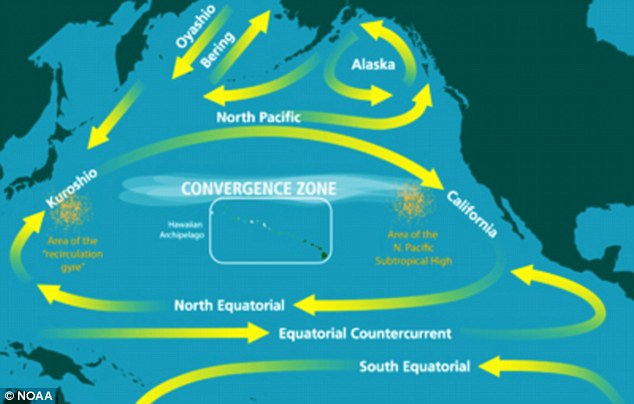 This media silence is a devastating one—so much so that if described properly it would curdle one’s soul. It is so disgusting that the only image that compares is the Nazi gas chamber, but this one is big enough for 40 million people.
This media silence is a devastating one—so much so that if described properly it would curdle one’s soul. It is so disgusting that the only image that compares is the Nazi gas chamber, but this one is big enough for 40 million people.
The issue of planetary contamination is more important than the economic crisis the media is covering, which threatens to go into its own kind of meltdown.
Things are so bad at Fukushima that, “Humans cannot come close to certain parts of the reactor site and even robots get fried. They’re delicate machinery; their micro-circuitry cannot withstand the intense bombardment of radiation,” reports Kaku.

 Environmental News Archive
Environmental News Archive



 Of particular interest was Ingram's extensive research on Monsanto's Roundup herbicide, which began several years ago when hundreds of Ingram's hives had died. He later determined that Roundup sprayings near his property were to blame, which prompted him to actively research the subject and closely monitor his hives in conjunction with this research from that point onward.
Of particular interest was Ingram's extensive research on Monsanto's Roundup herbicide, which began several years ago when hundreds of Ingram's hives had died. He later determined that Roundup sprayings near his property were to blame, which prompted him to actively research the subject and closely monitor his hives in conjunction with this research from that point onward. If the world can be seen in a grain of sand, watch out. As Wisconsinites are learning, there’s money (and misery) in sand -- and if you’ve got the right kind, an oil company may soon be at your doorstep.
If the world can be seen in a grain of sand, watch out. As Wisconsinites are learning, there’s money (and misery) in sand -- and if you’ve got the right kind, an oil company may soon be at your doorstep. One of the biggest problems is not simply that there is a massive cover-up related to what is really going on at Fukushima; it is that the media itself is to blame for its lack of front page coverage of what is taking place at Fukushima as the situation has become even more critical.
One of the biggest problems is not simply that there is a massive cover-up related to what is really going on at Fukushima; it is that the media itself is to blame for its lack of front page coverage of what is taking place at Fukushima as the situation has become even more critical.
 No farmer in their right mind wants to poison pollinators. When I spoke with one Iowa corn farmer in January and told him about the upcoming release of a Purdue study confirming corn as a major pesticide exposure route for bees, his face dropped with worn exasperation. He looked down for a moment, sighed and said, "You know, I held out for years on buying them GE [genetically modified or engineered] seeds, but now I can't get conventional seeds anymore. They just don't carry 'em."
No farmer in their right mind wants to poison pollinators. When I spoke with one Iowa corn farmer in January and told him about the upcoming release of a Purdue study confirming corn as a major pesticide exposure route for bees, his face dropped with worn exasperation. He looked down for a moment, sighed and said, "You know, I held out for years on buying them GE [genetically modified or engineered] seeds, but now I can't get conventional seeds anymore. They just don't carry 'em." The last 60 years have been the hottest in Australasia for a millennium and cannot be explained by natural causes, according to a new report by scientists that supports the case for a reduction in manmade carbon emissions.
The last 60 years have been the hottest in Australasia for a millennium and cannot be explained by natural causes, according to a new report by scientists that supports the case for a reduction in manmade carbon emissions.
 Hundreds of species of mammals in the Western Hemisphere may not be able to migrate with the projected speed of climate change, according to a new study released Monday.
Hundreds of species of mammals in the Western Hemisphere may not be able to migrate with the projected speed of climate change, according to a new study released Monday.






























